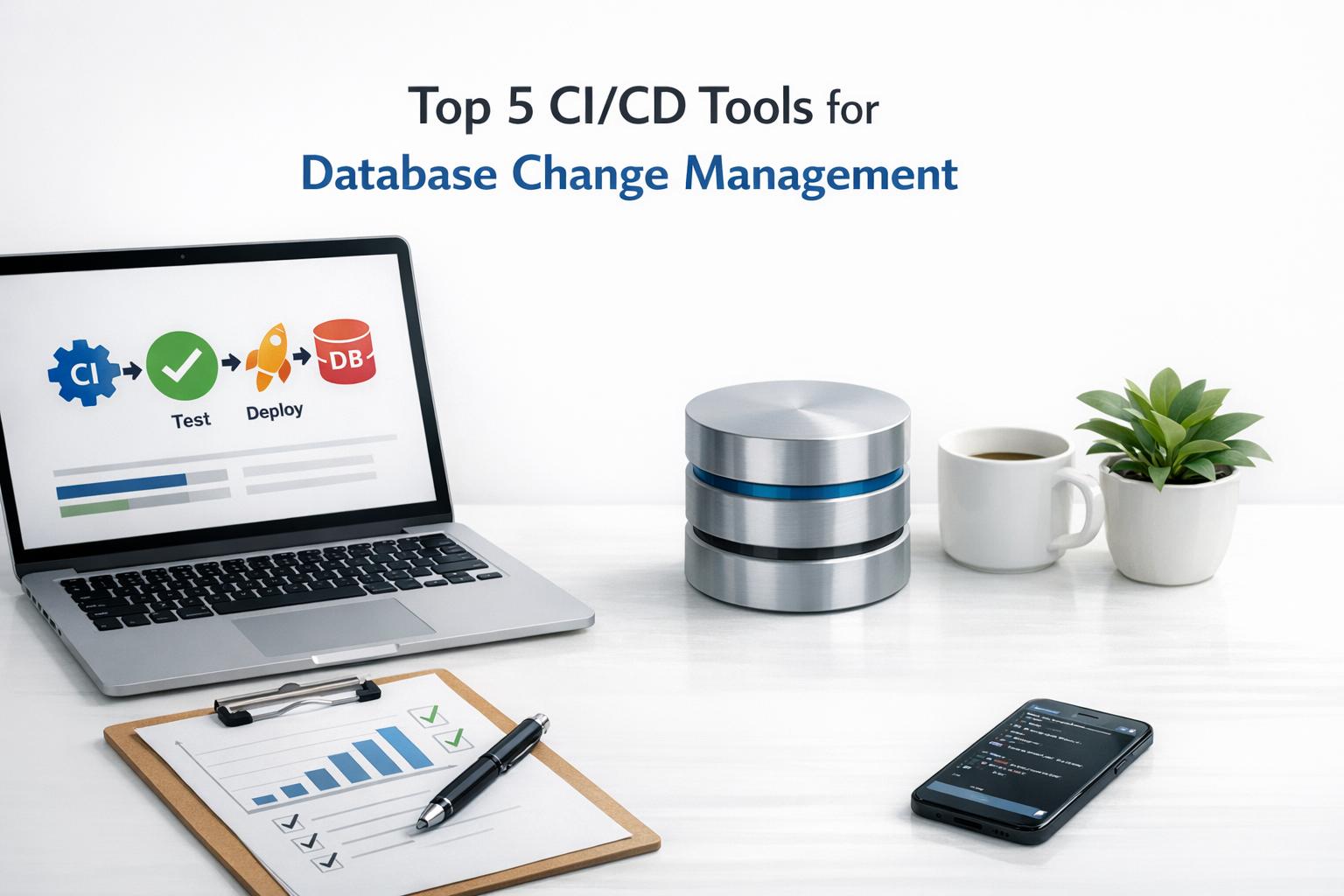Managing equity can make or break your startup. Here's what you need to know:
- Equity management tools help track ownership, meet legal requirements, and make smart decisions
- Key features: cap table management, compliance reporting, and scenario modeling
- Top 5 tools: Carta, Pulley, Ledgy, Shareworks, and BizBot
Quick comparison:
| Tool | Best For | Standout Feature | Starting Price |
|---|---|---|---|
| Carta | Scaling companies | Comprehensive compliance tools | Contact sales |
| Pulley | Fast-growing startups | 45-minute setup | Free (<25 stakeholders) |
| Ledgy | European startups | Multi-country support | €3/user/month |
| Shareworks | User-friendly option | Payroll integration | $3/user/month |
| BizBot | All-in-one admin | Tool recommendations | Not specified |
Choose based on your current needs, growth plans, and budget. Consider ease of use, integrations, and compliance features. Most offer free trials - test before you commit.
Remember: the right tool can streamline equity management, saving time and headaches as your company grows.
Related video from YouTube
What Are Equity Management Tools?
Equity management tools are digital platforms that help startups and SMEs track company ownership. But they're more than just ownership trackers.
These tools are like a Swiss Army knife for your equity. They help you:
- Manage your cap table
- Handle stock options and vesting schedules
- Automate dividend distributions
- Stay compliant with regulations
In short: they're your one-stop shop for all things equity.
Why should you care? Simple. As your company grows, managing equity without the right tools becomes a nightmare. Imagine tracking hundreds of shareholders, different share classes, and complex vesting schedules on a spreadsheet. Not fun.
Equity management tools turn that nightmare into a walk in the park.
Here are the key features to look for:
1. Cap Table Management
This is the core of equity management tools. You get a real-time view of your company's ownership structure.
2. Scenario Modeling
Want to see what happens if you raise a new round? Or issue more stock options? The best tools let you play out these "what-if" scenarios.
3. Compliance Reporting
Staying legal is crucial. Look for tools that help with 409A valuations and Rule 701 compliance.
4. Stakeholder Communication
Your investors and employees want to know what's going on. Good tools provide portals for stakeholders to view their equity info.
5. Integration Capabilities
The ability to connect with other software (like your accounting system) can save you tons of time.
Here's a sobering fact:
"Nearly 50% of private company employees struggle to understand their equity compensation." - Shareworks study
That's a lot of confused folks! But with the right equity management tool, you can boost understanding and engagement among your team.
Here's a quick comparison of what to look for in these tools:
| Feature | Why It Matters |
|---|---|
| User-Friendly Interface | Makes it easy for non-finance folks to understand |
| Real-Time Updates | Ensures everyone's working with the latest info |
| Automated Workflows | Saves time and reduces human error |
| Customizable Reporting | Helps you get the exact insights you need |
| Security Measures | Protects your sensitive ownership data |
As your company scales, your equity management needs will grow too. That's why it's smart to start using these tools early. They'll grow with you, saving you headaches down the road.
Bottom line: For startups and SMEs aiming for growth, equity management tools aren't just nice-to-have. They're essential. They help you stay organized, compliant, and ready for whatever comes next - be it a new funding round or an exit.
When picking a tool, think about where your company is now and where you want it to be. The right equity management tool can help you get there faster and smoother.
How to Choose the Right Tool
Picking an equity management tool for your startup isn't just about features. It's about finding a partner that'll grow with you. Here's what matters:
Scalability: Room to Grow
Think big. You need a tool that can handle more shareholders, complex equity structures, and future funding rounds.
Carta, for example, offers free plans for early-stage startups and scales up to enterprise solutions for public companies. That's the kind of growth potential you want.
Security: Fort Knox for Your Cap Table
Your equity data is sensitive. Look for bank-level encryption, different access levels, and regular security audits.
Pulley, for instance, has SOC 2 Type II compliance. That's top-notch security.
Integration: Playing Nice with Others
Your equity tool should connect with accounting software, HR systems, and payroll platforms. This isn't just convenient - it's crucial for accuracy.
Imagine manually reconciling equity data across different systems. Nightmare, right?
User Experience: Easy Does It
A tool that's a pain to use is a tool that won't get used. Look for intuitive interfaces, clear reporting, and easy onboarding for new users.
It's not just you using this - your team and investors need to understand it too.
Compliance: Staying on the Right Side of the Law
Equity management comes with legal requirements. Your tool should help with 409A valuations, Rule 701 compliance, and ASC 718 reporting.
Carta, for example, offers automated 409A valuations. That's a time-saver and a legal headache-avoider.
Cost: Bang for Your Buck
Price matters, especially for startups. But don't just go for the cheapest option. Consider:
- Free tiers for early-stage startups
- Transparent pricing as you scale
- Value-added features that justify higher costs
Here's a quick comparison:
| Tool | Free Tier | Paid Plans Start At | Best For |
|---|---|---|---|
| Carta | Yes (up to 25 employees, <$1M raised) | Contact sales | Comprehensive features |
| Pulley | Yes (<25 stakeholders) | $1,200/year | Flexibility and customization |
Support: A Lifeline When You Need It
Equity management can get complex fast. You want a tool with responsive customer support, comprehensive training resources, and access to equity experts.
Pulley, for instance, offers personalized onboarding to get you up and running quickly.
The Bottom Line
Choosing the right equity management tool is about balancing current needs and future growth. Don't just focus on features - think about how the tool will support your business as it evolves.
This isn't just about managing numbers. It's about keeping your team motivated, attracting investors, and making smart decisions about your company's future.
Take your time, do your homework, and pick a tool that'll be a true partner in your startup journey. Your future self (and your investors) will thank you.
1. BizBot
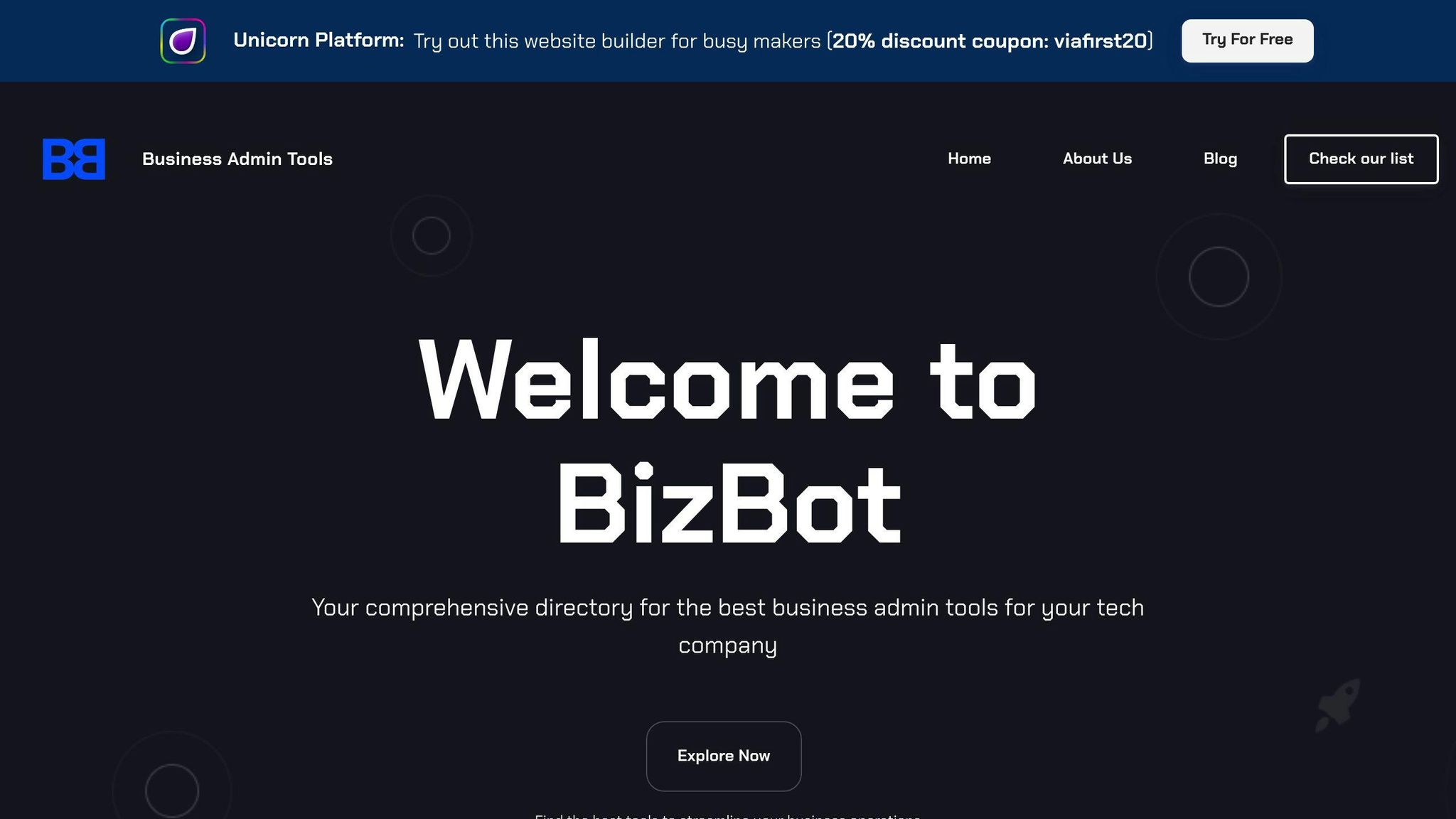
BizBot isn't your typical equity management platform. Instead, it's a one-stop shop for business admin tools, including equity management solutions. It's perfect for startups and small businesses looking to get their ducks in a row.
Here's what makes BizBot stand out:
Hand-picked tools: BizBot does the heavy lifting for you. They've sifted through countless business tools to bring you the cream of the crop. This includes equity management options that won't give you a headache.
Easy to use: BizBot knows you're busy. That's why they focus on tools that don't require a PhD to operate. It's great for:
- Freelancers just dipping their toes in the business world
- Small business owners who'd rather focus on their product than tech
- Growing companies that need tools that can keep up
Big picture thinking: Unlike tools that only do equity management, BizBot sees the forest and the trees. It connects equity management with other crucial business areas like accounting, HR, legal stuff, and board management. This is gold for startups juggling multiple balls.
Subscription smarts: Here's a cool feature - BizBot helps you manage your subscriptions. This can save you a bundle on all those tools you need, including equity management software.
Now, BizBot doesn't have its own equity management tool. But it can point you in the right direction. Here's a taste of what you might find:
| Feature | Why Startups Love It |
|---|---|
| Easy accounting integration | Makes tracking equity finances a breeze |
| Digital CFO services | Like having a financial wizard in your pocket |
| Ownership management tools | Keeps your cap table tidy |
| Legal service connections | Helps you stay on the right side of equity laws |
Remember, BizBot is more of a matchmaker than a direct service provider. How well it works for equity management depends on the tools it recommends.
If you're a startup looking for a Swiss Army knife of business tools, including equity management, BizBot could be your new best friend. But if you've got complex equity structures or need super advanced features, you might need to look beyond BizBot's suggestions.
2. Carta
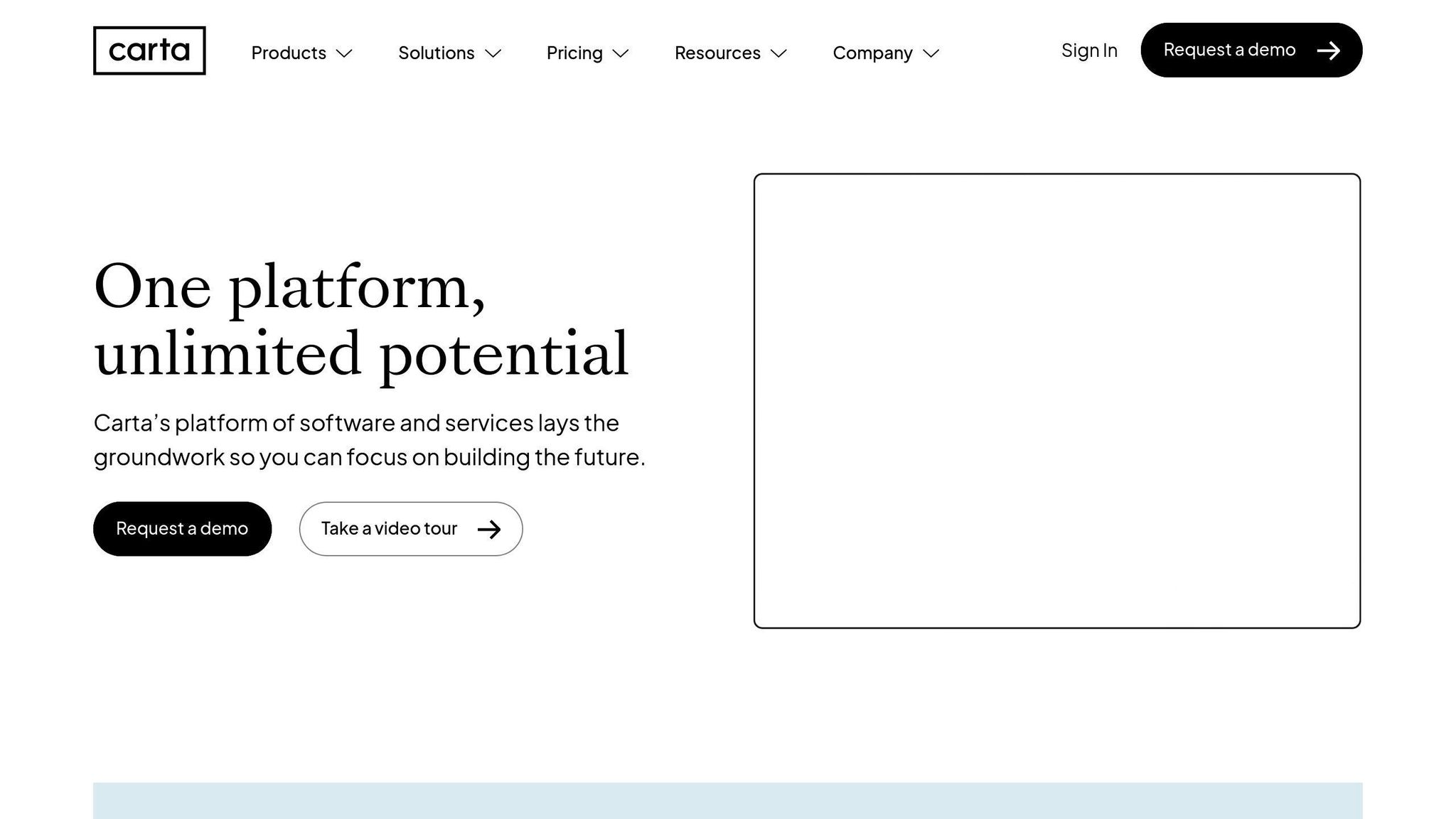
Carta is the big dog in equity management tools. It's not just a tool - it's a whole world for startups and SMEs juggling cap tables, valuations, and compliance.
Why Carta's a standout:
It's Got Everything (And Then Some)
Carta's toolkit is packed:
- Digital cap table management
- 409A valuations
- Scenario modeling
- Compliance reporting
- Employee equity management
It's like the Swiss Army knife of financial tools.
Grows With You
From tiny startup to IPO-bound, Carta's got plans:
| Plan | For | What You Get |
|---|---|---|
| Launch | New startups | Cap table management, SAFE financings |
| Build | Growing companies | Launch stuff + 409A valuations |
| Grow | Scaling businesses | Build stuff + GAAP/IFRS reporting |
Trust Issues?
Over 2 million equity holders use Carta. That's huge. But in 2023, they hit a snag when a salesperson misused customer data. Not cool.
Show Me The Money
- Free: For the little guys (under 25 stakeholders, less than $1M raised)
- Paid: You'll need to chat with sales
Karri Saarinen, Linear's CEO, didn't hold back: "This might be the end of Carta as the trusted platform for startups." Ouch.
The Good and The Not-So-Good
| Thumbs Up | Thumbs Down |
|---|---|
| Does it all | Can get pricey |
| Solid rep (mostly) | Recent trust hiccup |
| Top-notch 409A valuations | Setup can be tricky |
| Great support | Extra costs for some services |
Real Talk
Carta's not perfect. Some find it pricey post-fundraising. Matt Mireles, Oasis founder, jumped to AngelList, saying, "It was expensive for software."
But many still love it. One user said, "Carta makes managing our cap table incredibly simple and efficient."
The Bottom Line
Carta's like that friend who's good at everything. It does a lot, and does it well. But it's not flawless. If you're a startup wanting a robust, scalable solution and can handle potential higher costs, give Carta a look. Just keep those recent trust issues in mind.
sbb-itb-d1a6c90
3. Pulley
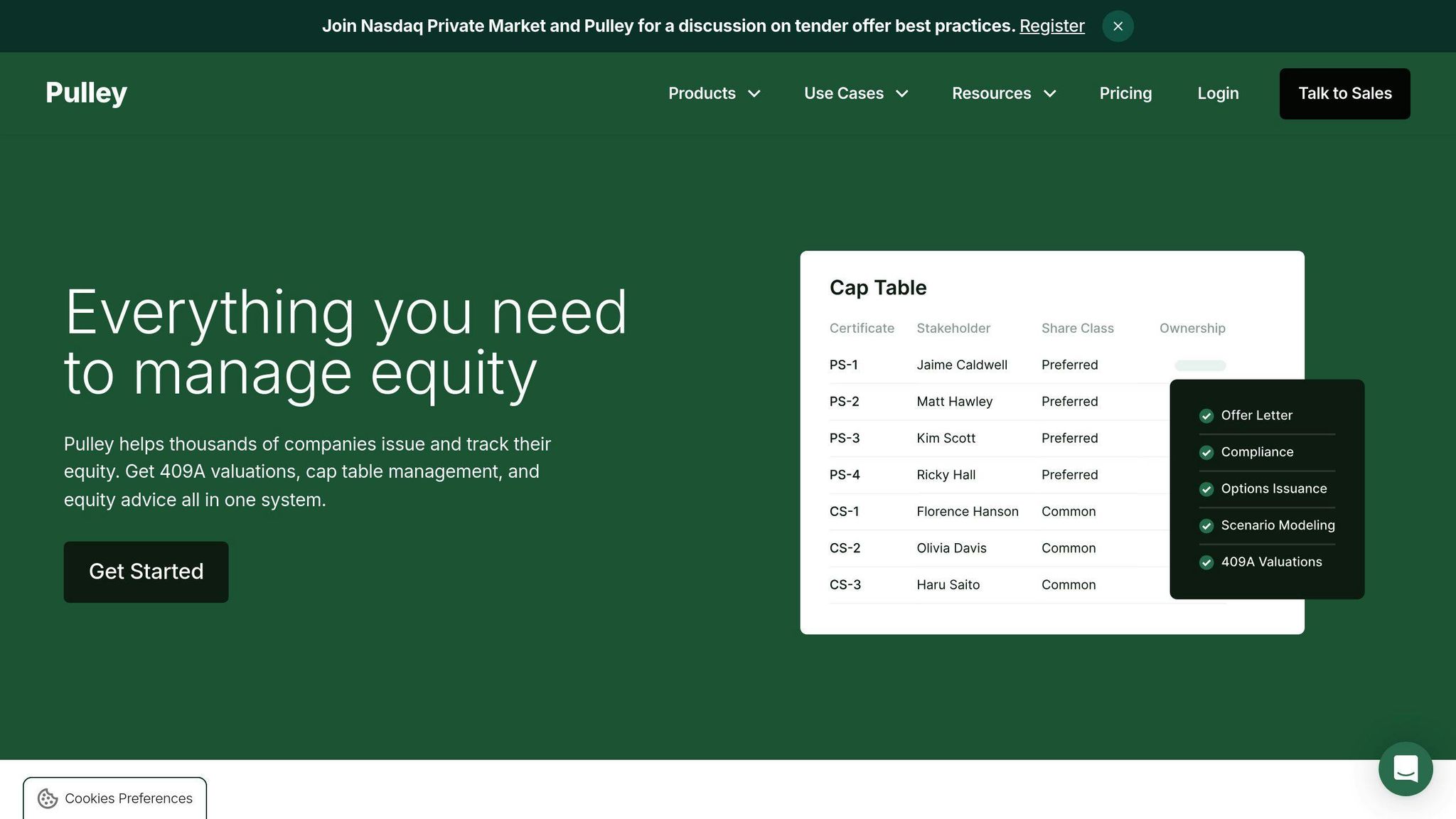
Description: Pulley is the smarter way to manage equity. While other platforms treat cap tables as a static record, Pulley helps founders and finance leaders make better equity decisions. Pulley streamlines compliance, eliminates hidden fees, and provides expert support—so you’re never left figuring it out alone.
From your first hire to IPO, Pulley gives you control, clarity, and confidence in your company’s ownership.
Key Features:
Pulley is an equity and token management platform for startups and growth-stage companies. Founders and finance teams use Pulley to manage cap tables, get 409A valuations, issue RSUs, and employee equity with ease.
Pulley streamlines compliance, automates tracking, and provides expert support. Features include scenario modeling, fundraising tools, and audit-ready reporting.
With transparent pricing and real-time insights, Pulley gives users clarity and confidence in managing equity at any stage.
Pricing
Transparent pricing you can trust. Pulley's pricing scales with your stage of growth: Invite as many admins as you need to manage your cap table. We charge only a fixed price per stakeholder.
Payroll Integrations: Pulley integrates with leading HRIS platforms to make it easier for you to track and manage employee total compensation.
Advanced Features: We don't want to nickel and dime you for cap table management. Scenario modeling, form 3921, ASC718 reporting, custom reports, and much more are available.
Pulley has 3 pricing plans. Starter: $1200 for managing equity for 1-25 stakeholders, Growth: $3500 for managing equity and 409A valuations for up to 40 stakeholders. Contact us for Scale or Custom plans.
Here's why Pulley stands out:
Fast Setup
Pulley gets you going quickly:
- Some users set up in 45 minutes
- Guided onboarding with an account manager
- AI-powered document handling
That's way faster than Carta's 90-day process.
Simple Yet Powerful
Pulley balances features and ease-of-use:
- Real-time ownership insights
- Customizable dashboard
- Easy-to-use interface
Yunlin Z., a Financial Controller, says: "Pulley's layout is simple and logical. What you need is often just a click away."
Fundraising Tools
Planning your next round? Pulley helps you:
- See ownership and share distribution
- Model different funding scenarios
- Make smart decisions
Quick 409A Valuations in-house
Pulley delivers:
- Valuations in 5 days or less
- Clear, detailed reports
- Audit-ready results
Employee Equity Management
Keep your team in the loop:
- Send offer letters through the platform
- Calculate equity values quickly
- Allow electronic option exercises
Flexible Pricing
Pulley's plans fit your stage:
| Plan | Price | For |
|---|---|---|
| Startup | $1,200/year | >25 stakeholders |
| Growth | $3,500/year | 40+ stakeholders |
| Custom | Ask sales | Complex needs |
Pros and Cons
| Pros | Cons |
|---|---|
| Easy to use | Newer company |
| Strong modeling tools | Some features only in higher tiers |
| Fast setup | Fewer integrations than others |
| Flexible pricing | Focused only on equity management |
| Great support |
User Feedback
"Moving from Carta to Pulley was quick and worth it! Great support, easy interface, flexible, and cost-effective." - Anonymous User
"Onboarding was smooth. I never felt lost or without help." - Anonymous User
Is Pulley Right for You?
Pulley works well for:
- Fast-growing startups
- Companies focused on equity management
- Teams without deep financial expertise
- Startups wanting a cheaper Carta alternative
With over 1,000 companies using it, Pulley is proving its worth.
If you're a startup or SME looking for a fresh take on equity management, Pulley might be your answer. Its speed, simplicity, and strong features make it a top choice in the equity management world.
4. Ledgy
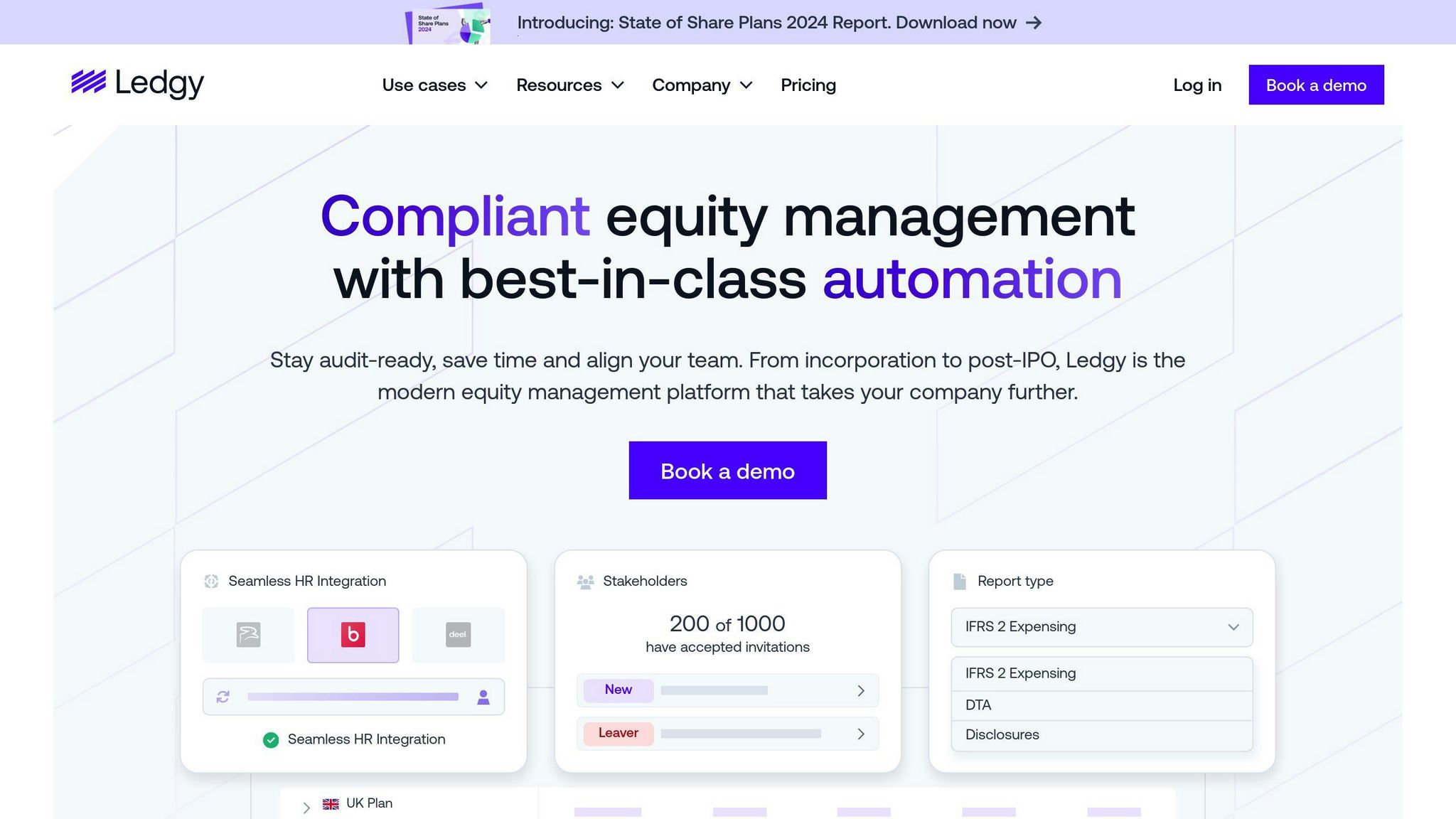
Ledgy is shaking up equity management for European startups and SMEs. This Zurich-born platform tackles the unique challenges of managing equity across multiple European jurisdictions.
Why is Ledgy turning heads? Let's dive in.
Ledgy speaks European. While many tools cater to the US market, Ledgy's designed to handle the complexities of different legal structures governing equity in every European country.
And they're not just talk. Ledgy's grown from 1,500 to 2,500 companies in a year, tripled their revenue, and raised $22 million in Series B funding. That's some serious traction.
Their client list? It's a who's who of European startups. We're talking unicorns and fast-growing companies like Getir, Gorillas, Alan, and Scalapay.
Ledgy offers a comprehensive suite of tools:
- Real-time cap table management with automated error flags
- Equity plan management, including automated vesting and exercising
- Funding round modeling
- One-click compliance reporting
- Employee dashboards for equity info access
Their pricing is designed to grow with you:
| Plan | Price | Best For |
|---|---|---|
| Launch | Free | Early-stage startups |
| Growth | €3/user/month | Growing companies |
| Scale | €300/month | Complex equity structures |
But don't just take our word for it. Here's what users are saying:
"Ledgy takes everything around cap table management and company ownership to the next level. The tedious spreadsheet days are gone." - Michael N., Managing Partner in Venture Capital & Private Equity
"I have just completed my EMI return. Last year, it took me a day to compile, manually adding data from various sources. This time, I hit a button. A great improvement – thank you Ledgy." - Stuart Barnard, VP Finance & Business Operations
So, what's the Ledgy advantage?
First, European expertise. Ledgy gets the nuances of European equity structures. As Hubert Fenwick, Co-founder and CEO of a Ledgy client, puts it:
"Compared to competitors, Ledgy was very strong and catered to more of what we needed from a European and UK-centric angle – like working with growth shares that are quite specific to the UK."
Second, they make compliance easy. Ledgy automates compliance across jurisdictions - a big deal for companies expanding into new markets.
Third, it's user-friendly. With a 4.6/5 user rating, Ledgy's interface is clearly hitting the mark. It's designed for both finance pros and employees new to equity.
Lastly, they take security seriously, with features like custom role-based access control.
Is Ledgy perfect? Not quite. Some users note restricted reporting functionalities and occasional software hiccups. But for European startups looking for a tailored equity management solution, Ledgy's a strong contender.
5. Shareworks
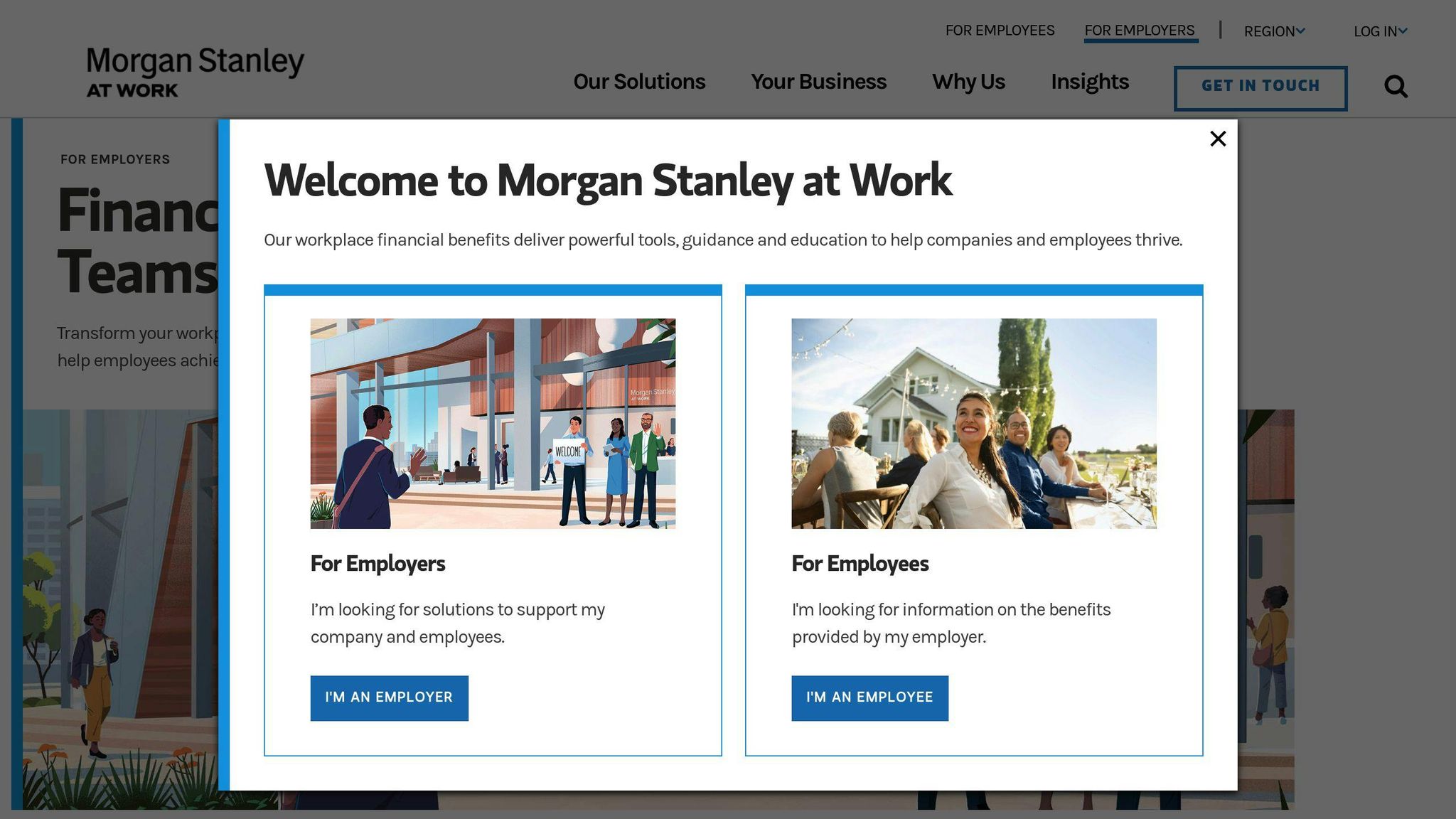
Shareworks is shaking up equity management for startups and SMEs. It's not just another tool - it's a full-fledged platform that takes the headache out of equity compensation.
Why is Shareworks turning heads? Let's dive in.
It's an All-in-One Powerhouse
Imagine having a financial whiz and a compliance guru rolled into one easy-to-use platform. That's Shareworks. It offers:
- Real-time cap table management
- Employee stock option administration
- Compliance tracking
- Seamless payroll integration
It Grows With You
Whether you're a tiny startup or a booming SME, Shareworks has your back:
| Company Size | What You Get |
|---|---|
| Small Startups | Basic equity management tools |
| Growing SMEs | Advanced features like scenario modeling |
| Pre-IPO Companies | Heavy-duty compliance and reporting tools |
You won't outgrow this platform anytime soon.
It's User-Friendly (Really!)
Equity management can be a maze. Shareworks hands you the map:
- Clean, intuitive dashboard
- Easy-to-grasp analytics
- Simplified employee equity info
One user said: "Shareworks makes managing complex equity plans feel like a breeze."
The Price is Right
Shareworks gets that startups need to pinch pennies:
- Starts at $3 per user, per month
- Subscription model for easy scaling
- No long-term strings attached
You're not stuck with a plan that doesn't fit.
It Makes a Real Difference
Shareworks isn't just talk. It's changing the game for companies:
"Shareworks helped us model different forecasting scenarios. It led to smarter decisions about our equity compensation strategy." - Satisfied User
"We cut our administrative time in half thanks to Shareworks streamlining our equity management process." - Happy Customer
The Shareworks Edge
Here's what sets Shareworks apart:
| Feature | Why It Matters |
|---|---|
| All-in-One Tools | Manage everything equity-related in one spot |
| Easy to Use | Less time learning, more time doing |
| Grows With You | From startup to IPO, it's got you covered |
| Compliance-Focused | Stay on the right side of regulations |
| Data-Driven | Make smarter decisions about equity |
Is Shareworks Your Match?
Shareworks might be perfect if you're:
- A startup wanting to simplify equity management
- An SME gearing up for growth or funding
- Focused on engaging employees through equity plans
- In need of solid compliance tools
With a 74% user satisfaction rating, Shareworks is proving its mettle in the equity management arena.
Tool Comparison
Let's compare the top 5 equity management tools for startups and SMEs. This breakdown will help you pick the right one for your needs.
| Tool | Key Features | Pricing | Best For | User Rating |
|---|---|---|---|---|
| BizBot | - Tool directory - Subscription management - Digital CFO services |
Not specified | Freelancers, small businesses | Not available |
| Carta | - Cap table management - 409A valuations - Scenario modeling |
Free (limited) Paid: Contact sales |
Startups to pre-IPO | 4.4/5 |
| Pulley | - Real-time ownership insights - Fundraising tools |
Free (<25 stakeholders) Startup: $1,200/year Growth: $3,500/year |
Fast-growing startups | 4.3/5 |
| Ledgy | - Multi-jurisdiction support - Automated vesting |
Launch: Free Growth: €3/user/month Scale: €300/month |
European startups and SMEs | 4.5/5 |
| Shareworks | - Cap table management - Payroll integration |
Starts at $3/user/month | Small startups to pre-IPO | 4.6/5 |
Carta and Pulley are the easiest to use. One Pulley user said:
"Moving from Carta to Pulley was quick and worth it! Great support, easy interface, flexible, and cost-effective."
For European startups, Ledgy is a top pick. Hubert Fenwick, Co-founder and CEO of a Ledgy client, explains:
"Ledgy was very strong and catered to more of what we needed from a European and UK-centric angle – like working with growth shares that are quite specific to the UK."
Shareworks users love its features. One customer reported:
"We cut our administrative time in half thanks to Shareworks streamlining our equity management process."
Carta is great for scaling. It's built to grow with you, from startup to pre-IPO.
Want quick setup? Go for Pulley. Users set up their cap table in about 45 minutes, way faster than Carta's 90-day process.
On pricing, Pulley and Ledgy are more upfront. Carta and Shareworks might cost more, but they offer more features for bigger companies.
Shareworks wins for customer support, beating Carta according to some reviews.
Your best choice depends on your needs, budget, and growth plans. Think about where your company is based (especially for European firms), how complex your equity structure is, and how big you want to grow.
How to Pick the Best Tool for Your Business
Choosing an equity management tool for your startup or SME isn't just important - it's critical. Here's how to nail the selection process:
Assess Your Current Needs
First, figure out where your company stands:
| Company Stage | What You Need |
|---|---|
| Early Startup | Basic cap table, founder equity tracking |
| Growing SME | Employee stock options, fundraising tools |
| Pre-IPO | Compliance tools, advanced reporting |
Plan for Future Growth
Don't just think about now - think ahead. Your tool should grow with you:
- Carta can take you from startup to pre-IPO. It's built for the long haul.
- Pulley starts free (under 25 stakeholders) and scales up to $3,500/year as you grow.
Consider Ease of Use
If it's not user-friendly, no one will use it:
- Pulley users say they can set up their cap table in about 45 minutes.
- Shareworks has a clean, simple dashboard that makes complex equity plans easier to manage.
Evaluate Integration Capabilities
Your equity tool needs to play nice with your other systems:
- Look for tools that work with your accounting and HR software.
- Shareworks integrates with payroll systems - a big plus for growing companies.
Prioritize Compliance Features
Stay on the right side of the law:
- Make sure the tool helps with 409A valuations, ISO 100k limits, and Rule 701 compliance.
- Carta is known for its strong compliance tools, including automated 409A valuations.
Compare Pricing Structures
Get the most bang for your buck:
| Tool | Starting Price | Best For |
|---|---|---|
| Pulley | Free (<25 stakeholders) | Early-stage startups |
| Ledgy | €3/user/month | European startups |
| Shareworks | $3/user/month | Scalable option |
Check User Ratings and Reviews
Learn from other people's experiences:
- Ledgy has a 4.85/5 rating from about 60 reviews.
- Carta sits at 4.25/5 from around 200 reviews.
Consider Geographic Needs
If you're in Europe, tools like Ledgy offer features tailored to European regulations and multi-jurisdiction support.
Test Drive Before Committing
Most tools offer free trials or demos:
- Pulley gives you 14 days to try it out.
- Use these trials to make sure the tool fits your workflow before you commit.
Set Up and Migration Tips
Once you've picked your tool:
1. Centralize Your Documents
Get all your equity-related docs in one place:
- Incorporation papers
- Stock option agreements
- Investor term sheets
2. Clean Your Data
Before you move:
- Double-check your existing cap table
- Make sure all stakeholder info is correct
- Fix any issues you find
3. Plan the Transition
If you're switching from another system:
- Pick a quiet time for the switch
- Let stakeholders know about the change
- Set a clear end date for the old system
4. Use Expert Support
Most tools offer help with setup:
- Pulley gives you an account manager to guide you through
- Take advantage of this help - it'll make things smoother
5. Train Your Team
Make sure key people know how to use the new system:
- Set up training sessions
- Create guidelines for how to handle equity management
Summary
Picking the right equity management tool can make or break startups and SMEs. Let's break down what we've learned:
Equity management software isn't just a fancy add-on. It's a must-have that:
- Makes complex tasks simple
- Cuts down on mistakes
- Keeps everything transparent
You want a tool that can grow with you, from your first funding round all the way to your IPO party.
What should you look for? Cap table management, compliance reporting, and scenario modeling are the big three.
Here's a quick look at the top tools:
| Tool | Perfect For | Cool Feature | Price Starts At |
|---|---|---|---|
| Carta | Companies on the up | Compliance tools galore | $2,800/year |
| Pulley | Startups moving fast | Set up in 45 minutes | Free (under 25 stakeholders) |
| Ledgy | European startups | Handles multiple countries | €3/user/month |
| Shareworks | Easy-to-use option | Plays nice with payroll | $3/user/month |
These tools aren't just nice to have. They're game-changers. Don't take our word for it. Here's what one Shareworks user said:
"Shareworks cut our paperwork time in half. It's like having an extra team member."
Ready to pick your tool? Here's what to do:
- Figure out what you need now (and later)
- Look at features and costs
- Try before you buy
- Think about where you're based (especially if you're in Europe)
- Make sure it's easy to use and can grow with you
